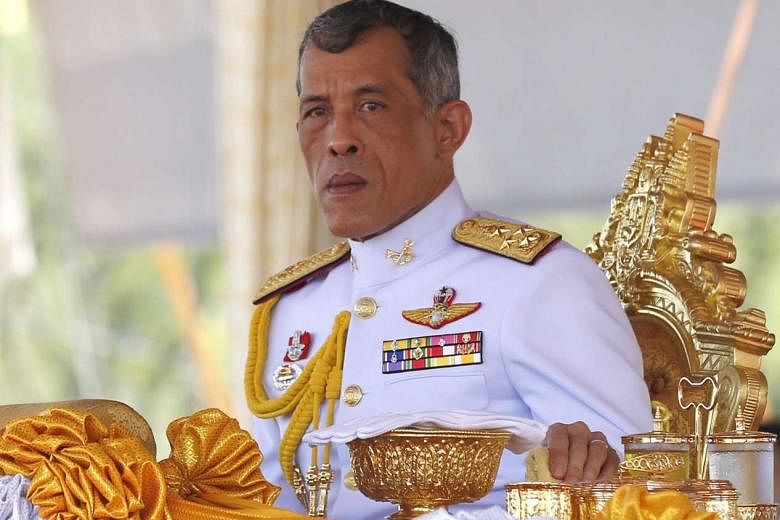BANGKOK - Thailand's Crown Prince Maha Vajiralongkorn has assumed the reins of one of the world's most high profile monarchies.
"I accept the invitation to fulfill His Majesty (King Bhumibol Adulyadej's) desire and for the benefit of all Thais," he said on Thursday (Dec 1) evening, in reference to his late father.
The 64-year-old monarch, who will now go by the name of King Maha Vajiralongkorn Bodindradebayavarangkun, was formally made King on Thursday evening after an audience with National Legislative Assembly president Pornpetch Wichitcholchai, Prime Minister Prayut Chan-o-cha, supreme court president Veerapol Tungsuwan and erstwhile regent Prem Tinsulanonda.
In a televised statement late on Thursday night, General Prayut said the new monarch's coronation will be held at the latter's discretion, after the cremation of his father. He "will carry forward (King Bhumibol's) leadership and legacy", said the premier.
Yesterday marked the 50th day since the death of King Bhumibol, a revered monarch whose passing plunged the nation into grief. The government has declared a mourning period of one year and indicated that the black dress code for civil servants during this period will continue to apply despite the accession.
Special prayers were held for the late King as the vicinity of the Grand Palace - where his body lies in state - was cleaned and spruced up. Meanwhile, photography shops reported increased sales of the new king's portraits as organisations prepared to display them on their walls as per custom.
Thai media have been running photos of the new king in royal regalia, describing the anticipation of Thais who expressed faith that the new monarch would continue his father's legacy.
The cremation of King Bhumibol's body is expected to be held sometime next year (2017). An elaborate funeral pyre will be built on the royal field next to palace, where mourners from all over the country had gone to pay their respects since his death.
But the accession essentially put to bed speculation about the royal succession that swirled amid the political turbulence that preceded the 2014 military coup. Since then, Asean's second-largest economy has been ruled by a military government, which will soon promulgate a new Constitution ushering in a "guided" form of democracy.
The Thai populace remains politically polarised following a series of coups and judicial decisions that have ousted popularly elected governments over the past decade. While military rule has suppressed dissent for now, political analysts stress that reconciliation remains a pressing issue. It remains to be seen if the new king can play a unifying role to the same extent as his father.
Unlike in many constitutional monarchies, Thailand's palace continues to wield much influence, largely because of the moral authority built up by King Bhumibol during his 70-year reign. In his younger days, the late monarch traversed the country to improve the rural livelihoods and rehabilitate the environment. He was also known for his public interventions against unpopular military dictators in 1973 and 1992.
Yet the Kingdom's royals remain shielded by a lese majeste law that allows for someone to be jailed for up to 15 years each time he insults or defames the king, queen, regent or heir apparent. This has been more strictly enforced in recent months, with the government devoting considerable resources to scrubbing the Internet of averse comments about the monarchy.
King Maha Vajiralongkorn, a qualified pilot schooled in Britain and Australia, is the only son of King Bhumibol and Queen Sirikit.
In the years leading up to his accession, he had taken up more ceremonial duties on behalf of his ailing father, and publicly led two mass cycling events around the capital that were organised last year in honour of his parents.
Shortly after King Bhumibol died on Oct 13, the then heir apparent asked for time to mourn with the people, instead of assuming the throne immediately. This required royal duties to be assumed by a regent, which was fulfilled by then privy council chief Prem.
Forty-four years after being anointed as Crown Prince by his father, he is now the 10th King of the two-century old Chakri dynasty, and helms one of the richest and most powerful monarchies in the region.




